8 Games and Everyday Activities to Improve Kids’ Emotional Intelligence
It demonstrates the ability of the individual to deal with the people they interact with and to produce solutions to problems. Individuals with a high level of emotional intelligence are successful in human relationships and have strong negotiation skills.
So, how to increase emotional intelligence and emotional intelligence in children?
Best Emotional Intelligence Games and Activities
Doing exercises to develop all types of intelligence will help your kid and their mental development. And games are the best exercises to improve their EQ and interpersonal intelligence skills.
So whether your child is a teenager or toddler, you can try the following interpersonal intelligence games and activities to boost their emotional intelligence and improve their musical intelligence, mathematical intelligence and attention ability.
💡 Skills acquired in childhood affect our emotional intelligence! Read this section to help your child improve their emotional intelligence:
Don't underestimate games because they are the most effective way to boost children's mental skills. For example, online problem-solving exercises or board games are a great way to develop your children’s mental skills
MentalUP, a pedagogically-designed brain games app, supports children's attention and memory development and logic, visual, and verbal intelligence development. It also offers them lots of fun workouts for kids to improve their intelligence.
5 Games to Improve Emotional Intelligence
1. Improve Your Emotional Intelligence With Games
We’ve put together some of our best emotional intelligence games and activities for you. These will be a good starting point to improve your EQ while having fun!
2. The Emotional Intelligence Game
This emotional intelligence board game focuses on improving self-awareness, empathy, relationship skills, mood management, and self-motivation.
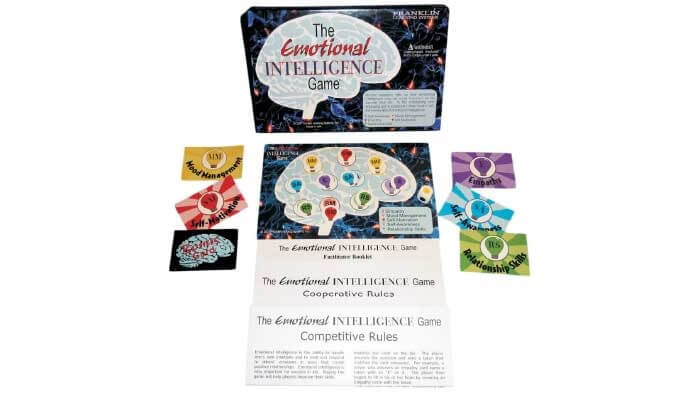
While playing, children are encouraged to practice these skills by responding to prompts on the deck of cards. Moreover, the game utilizes cognitive behavior therapy and social learning theory techniques to help the players build emotional intelligence.
3. eeBoo What Do I Do? Conversation Flashcards
This emotional intelligence card game aims to help develop empathy through illustrations of social situations that show complex emotions.
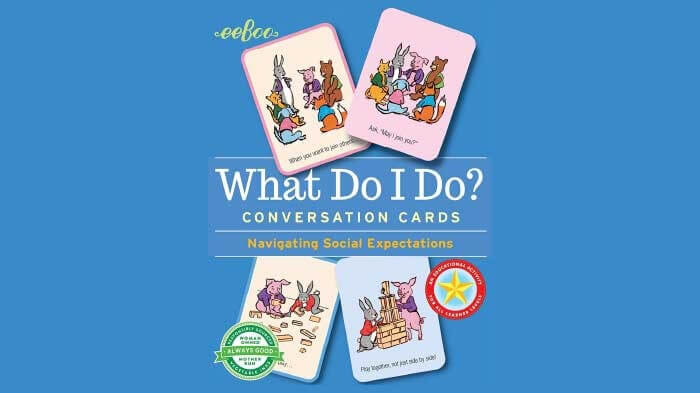
The situations in the cards encourage thoughtful analysis of emotional dynamics, sparking conversation and insight. Conversation Cards also focus on cultivating valuable communication skills as they build a foundation for social and emotional learning.
4. Breathe, Think, Do with Sesame
This fun app focuses on children to help a Sesame Street monster friend calm down and solve everyday challenges.
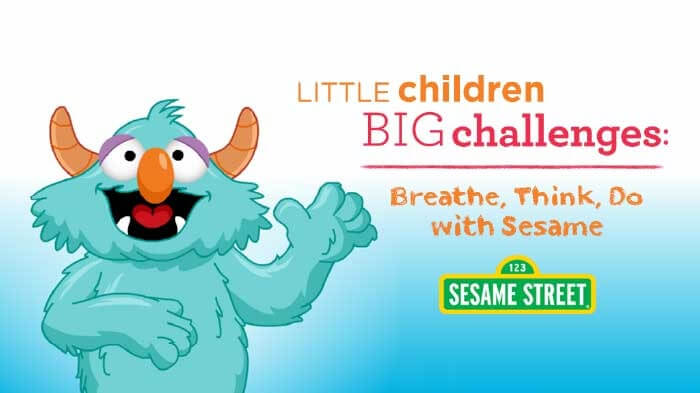
The bilingual (English and Spanish) app helps your children learn Sesame’s “Breathe, Think, Do” strategy for problem-solving as they help the monster friend take deep breaths, think of plans, and try them out!
5. Daniel Tiger's Grr-ific Feelings
Daniel Tiger’s Grr-ific Feelings app helps children to play and explore their feelings through four engaging activities:
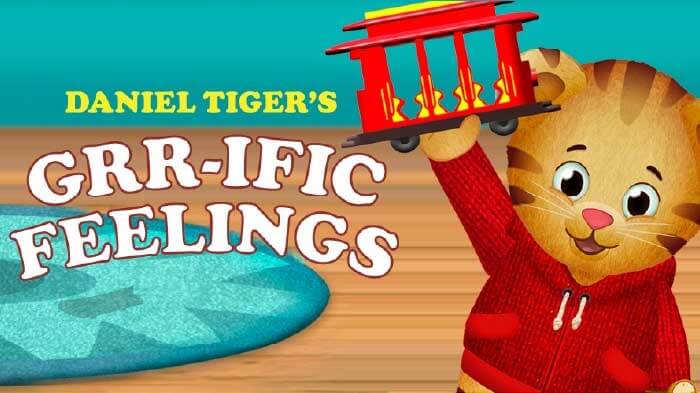
- In Trolley Game, kids drive the trolley to discover more than a dozen mini-games about feelings.
- In Sing-Along, they can choose from 18 Daniel Tiger songs, each one fully animated.
- In Drawing Easel, they can use paints, crayons, stickers, and more to express themselves.
- In the Feelings Photo Booth, they can take pictures of themselves that show lots of different feelings.
3 Everyday Activities to Boost Emotional Intelligence
1. Name Your Emotions

For starters, you can share your own emotions with your kids. And then, as Dr. Siegel suggests, you can help kids to identify their own feelings by asking them, “I wonder if you’re feeling, ....”. This phrase can give them a start to figuring out what they might be feeling.
2. Emotions Sort
This activity focuses on your kids' ability to identify and understand the different feelings.

To play, you simply need to write the five basic emotions (happy, sad, angry, afraid, ashamed) on sticky notes or note cards.
Then, write down the emotions related to each main category and cut the cards apart. And then ask your children to find out where each emotion might fit in one of the five basic categories.
3. Labeling Emotions

One of the great ways to help their emotional intelligence is labeling other people’s emotions. For this, you can try to identify the emotions of the characters when you’re reading a story together. Or, when watching TV, you can ask your kids to identify by the body language and the words that describe emotions that person is feeling.
Music is also an excellent way to understand feelings. You can check out our list of music apps for kids and encourage them to identify and accept all the emotions in a healthy way.
Emotional Intelligence Skills
As we mentioned before, children and adults with a high level of emotional intelligence can easily be recognised by their communication or leadership skills. Other characteristics include:
- Extroversion
- Popularity
- High energy
- Positive energy
- Leadership traits
- Strong communication, negotiation, and debating skills
- High empathy
- Strong teamwork skills
- A cool head in a crisis
- Solution-oriented.
- Good listening and problem-solving skills
Are You Sure About Your Skill Areas?
Multiple Intelligence Tests can help you discover your skill areas and ensure you’re on the right track. It’s the easiest way of detecting your special interest and skill areas. Quick and Instant results! Here:
How to Improve Emotional Intelligence?
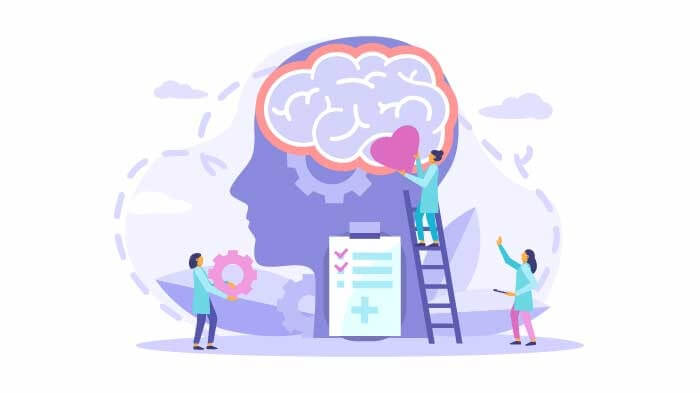
Childhood experiences form the basis of emotional intelligence. Accordingly, these are the reasons why emotional intelligence skills might not develop at the desired level:
- Absence of a role model in childhood.
- One or more family members are more authoritarian than normal.
- The family is constantly being accusational and judgemental.
- Frequent discussions or quarrels between parents.
- Uneasy family environment.
- Lack of family or friends in childhood.
As a result, some children may have a high level of emotional intelligence, while others will develop it in later years.
Even if your child's emotional intelligence skills are underdeveloped, you don't have to be afraid. It is possible to support kids’ emotional intelligence skills with some exercises and practice.
1. Make sure your child is a good observer!
Individuals with high emotional intelligence are known for being good observers. If you want your child to develop emotional intelligence, make sure that they observe people and social interactions.
In the beginning, it would make more sense for your kid to start by observing people with the strongest emotional intelligence skills. Be sure to tell your child to pay attention to how these people choose to communicate with others around them!
2. Support with Social Intelligence!
Although emotional intelligence is not exactly the same as social intelligence, it has similar characteristics. Therefore, investing in your child for the development of emotional intelligence is also beneficial for the development of interpersonal intelligence.
With emotional intelligence, you can help your child develop empathy and social intelligence.
3. Promote and Understand Different Cultures!
The people with whom your child communicates may not always come from the same culture. In this case, there is a possibility of communication problems.
The best way to overcome this is to be able to recognise cultural differences.
4. Encourage Them to Be a Good Listener!
Qualified listening, one of the key features of individuals with high emotional intelligence, is a characteristic that can be developed with small exercises.
For example, tell your kid to wait for people to finish speaking before they start talking.
5. Teach Them to Congratulate and Appreciate People Around Them!
Many people who have high emotional and interpersonal intelligence know exactly when and how to congratulate others around them.
It is very important for your child to learn to sincerely appreciate the actions of family, friends, and people around them.
IMPORTANT: Emotional intelligence helps people to communicate and speak in front of crowds, which helps to build self-confidence.
To develop emotional intelligence, you must be aware of your child's existing level. For more information, don’t forget to look at is my child gifted checklist. It is easy to then support their development by following our recommendations above.
You can use MentalUP to support your child's emotional skills through visual, attention, memory, and verbal exercises.
Famous People with High Emotional Intelligence
It is possible to see masters of communication at work. They are popular people in high positions of power due to their advanced communication skills, rhetorical skills, and empathy skills.
- Mahatma Gandhi: Gandhi was one of India's most important human rights defenders.
- Socrates: Regarded as one of the founders of Greek philosophy and an emotionally intelligent man, Socrates expressed his hunger for knowledge with his famous saying, ‘All I know is that I know nothing’.
- Sigmund Freud: Austrian psychologist Freud is the founder of psychoanalysis, and has influenced many people with his effective and strong communication skills. This characteristic shows that he had high emotional intelligence.
Which Professions are Suitable for People with Emotional Intelligence?
One of the most important questions that parents of children with a high level of emotional intelligence wonder is, ‘Which occupations are best suited for those with high levels of emotional intelligence?’.
If you have a child with high emotional intelligence, you should first know that your child has no problems in expressing themselves or working in groups. Therefore, almost all professions are suitable, but some occupations will stand out.
Here are the most suitable professions for these children:
- Politician
- Manager
- Government minister
- Teacher
- Academic
- Therapist
- Psychologist
- Diplomat
- Negotiator
- Sales or marketing specialist
- Social worker
- Actor







